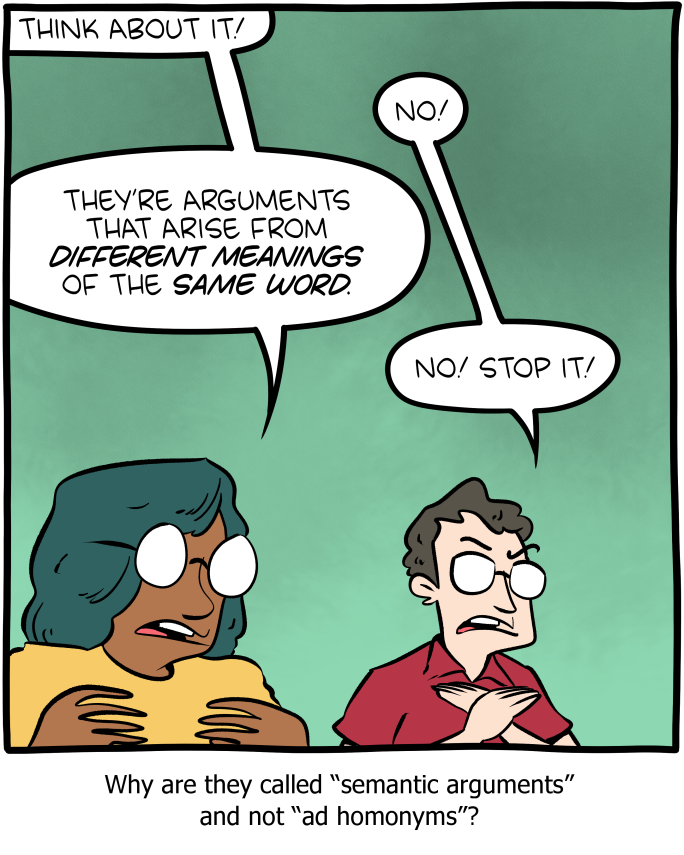Quite possibly. But I’m interested if this dialect @JethOrensin mentioned has maintained a vestigial aspiration distinction in this particular context

Saturday Morning Breakfast Cereal - Ad
Saturday Morning Breakfast Cereal - Ad
Quite possibly. But I’m interested if this dialect @JethOrensin mentioned has maintained a vestigial aspiration distinction in this particular context
Back in high school, I had aspirations of becoming a linguist. I did Latin, Japanese and French while in high school, then tried to pick up Chinese and Greek in college.
I have since forgotten pretty much everything except basic conversational Japanese, though I’ve recently been trying to get that back. Additionally, I’ve been trying to pick up Russian (and, by proxy, Ukrainian) for my wife, whose family is from the USSR (though present day Ukraine).
I can still understand a lot of things I hear in every language I’ve studied, but I’d be hard pressed to have a conversation in anything other than Russian and (hilariously enough) Latin.
I had to google that as well. ![]()
Φ and Θ are definitely frickatives, but X is on a much lighter scale of blocking the passage of the airstream than those two.
I have no clue on how to answer this in a written way, so I think that the most efficient solution is for me to make a small sound-clip and upload it in the weekend and you can judge whether something is abnormal or unexpected. ![]()
This makes me think that I am still not understanding the whole “aspirated”, “unaspirated” thing at all.
I cannot resist a bad wordplay, so this means that since you abandoned that goal, you are now unaspirated? … sorry! ![]()
You could have a look at the sound examples on the Wikipedia article on aspiration. Specifically the Chinese and Indian example are very clear to show the difference, and there’s a section on (ancient) Greek as well
but X is on a much lighter scale of blocking the passage of the airstream than those two.
Is it possible you’re detecting the assimilation of some consonants (especially the velar ones) to the place of articulation of the following vowel?
Wikipedia seems to indicate that χ is still a fricative even when fronted, but it’s possible that Wikipedia is either outdated or referring to a different dialect of Greek than you are
Wikipedia might have a suggested explanation for Southern dialects
understanding the whole “aspirated”, “unaspirated” thing
Learning English and German in school, I never realised there was a difference in pronunciation of “p” in “pin” (p in initial position in a word) and “spin” (p in any other position in a word). But “pin” is more pronounced like “phin” (by which I don’t mean an “f”-sound, but an aspirated p, with an extra puff of air after the p, so more or less like “p’hin”) by native English speakers and native German speakers.
In Dutch, “p” is always pronounced as in “spin” (unaspirated p), whatever the position, and I only started noticing the difference beween “pin” and “spin” when it was pointed out to me long after I finished school.
And English doesn’t only have this aspiration with an intial “p” sound, it’s also with an initial “k”-sound and an initial “t”-sound.
Even an initial “w” can be aspirated in English, although the aspiration then precedes the “w”, pronouncing “white” as “hwhite”.
Even an initial “w” can be aspirated in English, although the aspiration then precedes the “w”, pronouncing “white” as “hwhite".
w is actually the only one I can hear. Can’t hear p or k or t lol. End of spin and pin sound identical to me.
Can’t hear p or k or t lol.
I suppose it does depend a bit on whether the native English speaker puts emphasis on those initial consonants.
Here is an example of someone exaggerating it a bit.
Funny: By identifying which letters occur in a text, you can identify in which European language it is written:

Saturday Morning Breakfast Cereal - Ad
Torpenhow Hill (.mw-parser-output .IPA-label-small{font-size:85%}.mw-parser-output .references .IPA-label-small,.mw-parser-output .infobox .IPA-label-small,.mw-parser-output .navbox .IPA-label-small{font-size:100%}locally /trəˈpɛnə/ trə-PEN-ə) is claimed to be the name of a hill near the village of Torpenhow in Cumbria, England, a name that is tautological. According to an analysis by linguist Darryl Francis and locals, there is no landform formally known as Torpenhow Hill there, either officia...